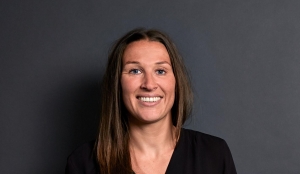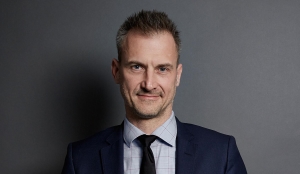Advocate-General paves the way for employees to be forbidden to wear religious headgear at the workplace
In a matter, the European Court of Justice has been asked by a Belgian court if a prohibition for employees against wearing visible characteristics of political, philosophical or religious belief violates Directive 2000/78/EF[1]. In the specific matter, it concerns a prohibition against a Muslim female wearing a headscarf at her workplace during working hours.
On 30 May 2016, Advocate-General Juliane Kokotts made her proposal for a response to the preliminary issue in matter C-157/15.
Background
The matter concerns a Muslim female, Samira Achbita, who was hired as a receptionist at the integrated security company G4S Secure in Belgium in February 2003.
G4S Secure had an unwritten rule that employees were not allowed to wear religious, political or philosophical symbols while working. With the acceptance of the joint consultative committee, this rule was incorporated officially on 13 June 2006 in G4S' working regulation with the following wording:
"It is forbidden for the employees to wear visible characteristics of their political, philosophical or religious conviction at the workplace and/or to go through with rituals in accordance herewith".
In April 2006, Samira Achbita informed the management that she would start wearing a headscarf during working hours. G4S then informed her that this was in violation with the company principle about neutrality. When she returned to work after sick absence in June 2006 – still with a headscarf – she was dismissed by G4S due to her firm intention as a Muslim to wear an Islamic headscarf.
Based on this, Samira Achbita filed an action for damages against G4S with reference to the above Directive on discrimination - in this case due to religious conviction. G4S was acquitted by the two first court instances, whereupon the court case is now pending before the Belgian Hof van Cassatie which now has asked the European Court of Justice a preliminary question.
As a rule, an employer must not discriminate its employees based on religion, political conviction etc. However by the Føtex-Judgment (U2005.1265H), the Danish Supreme Court established that it was not unlawful indirect discrimination to deny an employee to wear a religiously motivated headscarf as the company had phrased a staff policy in writing which clearly described the clothing rules and which the employer consistently enforced.
Advocate-General's opinion
The Advocate-General Juliane Kokotts starts her opinion by summarising the question put in the specific case this way:
"Must a private employer forbid an employee with Islamic faith to wear a headscarf at the workplace? And must the employer dismiss her because she refuses to take of the headscarf at the workplace?"
According to the Advocate-General, the main issue is if the prohibition at G4S represents direct or indirect discrimination as various national authorities and the EU-Commission in the case law in hand have been split in the matter.
The Advocate-General states that there is no direct discrimination based on religion when an employee with Islamic faith is prohibited to wear a headscarf at the workplace, if this prohibition is based on a general internal company rule which prohibits visible political, philosophical and religious symbols at the workplace and not on stereotypes or prejudices against one or more specific religions or against religious persuasions in general.
However, the Advocate-General states that in the matter in hand it may be indirect discrimination as there is a risk that the prohibition will particularly affect Muslim females more severely.
Consequently, the Advocate-General inquiries into if the indirect discrimination is legally substantiated. Indirect religious, uneven treatment may be reasoned in any legitimate measure if only the measure in dispute – in this case the prohibition against visible political, philosophical and religious symbols – are suitable and necessary to fulfil the goals in question. In other words, a professional requirement must only be an expression of a legitimate goal and thereby constitute an objective argument which may substantiate an unfair treatment due to religion. The professional requirements must not necessarily be established by the Member States by laws and decrees but can be established by internal rules as it is the case here.
According to the Advocate-General, the exception must, however, be strictly interpreted as it must concern a "regular and decisive professional requirement". However, the employer must be conceded a professional judgment which in the end has its fundamental right to establish and run his own business. Therefore, the Advocate-Generals states:
" (…) furthermore, an employer can also within the scope of a company policy which he must have established instruct the employees to act and dress in a certain way at the workplace. This applies particularly when the employees in question – as Samira Achbita in the matter in hand – during exercising their duties regularly have direct visual public relations."
As an employee cannot leave his gender, his skin colour, his ethnic background, his sexual orientation, his age or his disability "outside the door" when he enters the employer's premises, there may according to the Advocate-General in connection with the person in question exercising her religion at the workplace, however, be required a certain amount of restraint whether or not it involves religious practice, religiously motivated behaviour or – as in the matter in hand – the relevant person's clothing.
Although the Advocate-General also states that in the end it is for the national court to establish a fair balance where the religious freedom will be weighed in relation to opposite considerations, the Advocate-General at the same time paves the way with her statement that the bar for opposite considerations is lowered in this assessment. Thus, the Advocate-General concludes that:
"In conclusion, a prohibition as the one determined by G4S may be regarded as a regular, decisive and legitimate professional requirement as dealt with under Article 4 (1) of Directive 2000/78 which as a rule may substantiate unfair treatment– regardless it is of direct or indirect nature – due to religion provided that the principle of proportionality is complied with."
Bird & Bird's remarks:
Firstly, please note that the Advocate-General's proposal for a judgment is not binding on the European Court of Justice. The Advocate-General's job is utterly independently to recommend to the Court how to rule in the matter in question.
However, often the European Court of Justice follows the Advocate-General's recommendation, and therefore it probably may be assumed that the European Court of Justice will give the Belgian court more or less the same response.
If the European Court of Justice follows the Advocate-General's proposal, the ruling will establish a legal position which until now has been somewhat uncertain and not least in the individual Member States. It will pave the way for a broader deployment for Danish companies' possibilities to implement and enforce a clothing policy which is made on a reasoned and objective basis.
Bird & Bird will follow up on the matter when the European Court of Justice has ruled.




